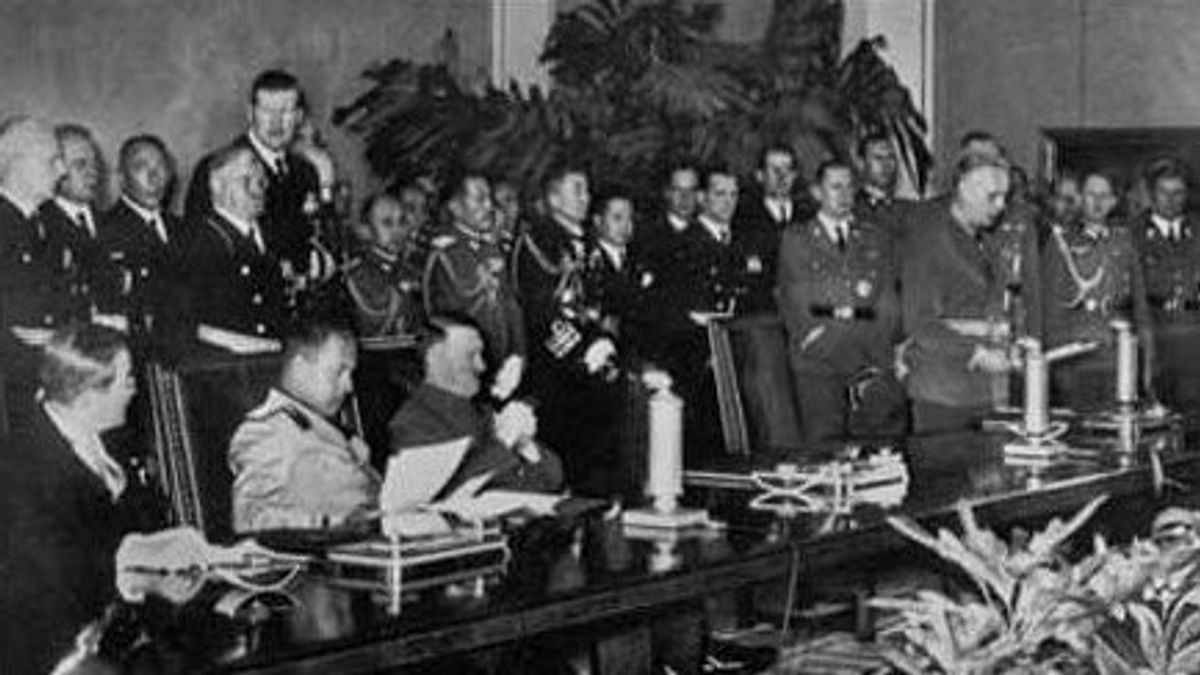JAKARTA - Today, September 27, 1940, the Axis countries, Germany, Italy and Japan cemented their alliance by signing the Tripartite Pact in Berlin. The agreement was actually a Nazi effort to build strength in the Eastern European region before the Pacific War broke out. But why could Japan, a non-European country join in?
The Tripartite Pact guarantees that every member of the alliance is obliged to provide assistance if one of the alliance members is attacked by any country. There were two major recognitions in the agreement: Japan recognized the leadership of Germany and Italy in the formation of a new order in Europe, while Japan was granted power over Greater East Asia.
Quoting Fernando R. Srivanto in Nazi Collaborator (2008), he explained that the Tripartite Pact was an attempt by Nazi Germany to mobilize Axis power in Eastern Europe and the Balkans. The signatories to the agreement include Slovakia, Albania, Hungary, Bulgaria, Romania and Yugoslavia.
The Axis Alliance was similar to what the Allies did. "But in practice the alliance was nothing more than a collaboration to support Nazi Germany. In short, it was still the Nazis who were in total control," Srivanto wrote.
According to Srivanto, the motive for the collaboration was not just ideological reasons, but power. Nor is it purely political, but economic.
Both individual and fascist groups collaborating with Nazi Germany exhibited different motives. "Ultimately, cooperation with the Nazis was an option for people who emphasized practical factors, such as adventure and fame in short accounts leading up to the outbreak of World War II," it wrote. Then is this practical interest one of the reasons for "obeying" Germany and participating in signing the Tripartite Pact? Can be.
Japanese considerationsCiting the Encyclopedia Holocaust page, the main partners of the Axis (Germany, Japan and Italy) have two main interests in common. First, namely the expansion of territories and the formation of empires through military conquest and the overhaul of the international order of life after World War I, and the destruction of Soviet Communism.
This was reflected when the Nazis and Imperial Japan signed the Anti-Comintern Pact on November 25, 1936. A year later, Italy joined the pact on November 6, 1937.
Apart from that, Srivanto's argument about the practical interest motive in collaboration with the Nazis has a point. It seems that this is what made Japan want to sign the Tripartite Pact.
Quoting the BBC, Japan has actually been nervous about Germany after the country invaded France and all of western Europe in 1940.
Japan was worried that Germany would also control Indochina and the Dutch East Indies. Yet the region is part of Japan's vital supply route for their human and material resources.
The Sakura State was worried that the Nazis would influence their interests in Southeast Asia. Nor are they optimistic about Hitler's long-term intentions.
Therefore, Foreign Minister Matsuoka advocated strengthening political relations with fascist countries. That's why Japan finally agreed to the Tripartite Pact.
At the same time, Japan was faced with the ABCD (America, Great Britain (UK), China and the Netherlands) siege which threatened the Japanese "market" and its interests in Asia. Thus, Japan felt the need to strengthen their position.
The English, Chinese, Japanese, Arabic, and French versions are automatically generated by the AI. So there may still be inaccuracies in translating, please always see Indonesian as our main language. (system supported by DigitalSiber.id)










